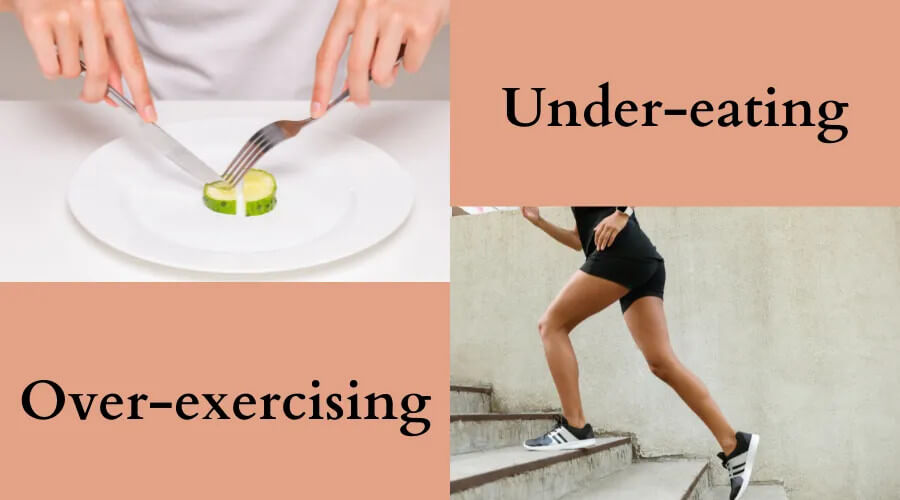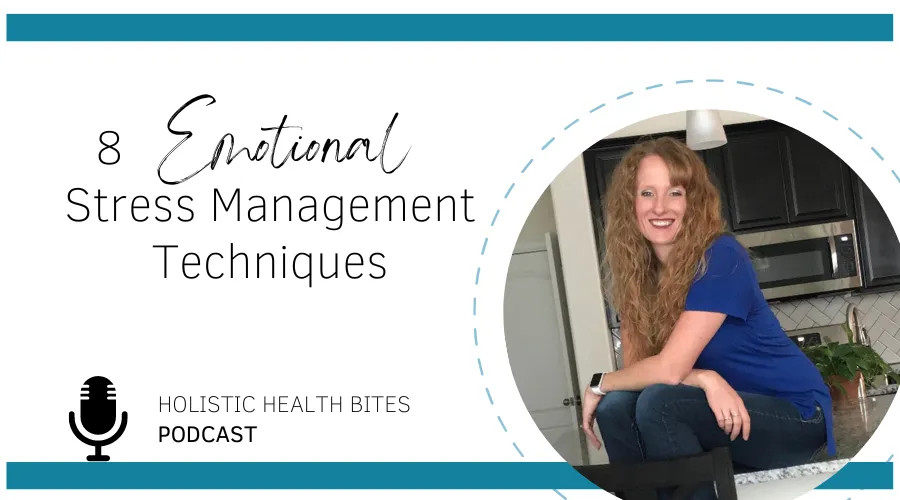
It’s no secret that many people are unhappy with their weight. In fact, according to the Centers for Disease Control, more than 41% of American adults are overweight or obese. So it’s no surprise that so many people are looking for ways to lose weight. And it’s also no surprise that so many people believe that if they workout hard, diet strictly, and fast a lot, they will be able to lose more weight. But, under-eating and over-exercising is NOT the way to sustainable weight loss!
The problem with this way of thinking is that it can actually lead to under-eating and over-exercising, which can be dangerous and counterproductive. I hear it all the time from people who truly believe they’re doing all the right things for their health – they’re exercising for an hour or more per day, they’re sticking to a 1200-calorie diet and they’re fasting 20 hours a day. They’re totally frustrated by the fact that they’re not losing weight, they’re exhausted, losing hair, have wild mood swings, and crazy cravings, and even their workouts are suffering. This is a problem!
Are you under-eating and over-exercising?
Let’s explore the dangers of under-eating and over-exercising, and how to avoid them.
The Dangers of Under-Eating
When you don’t eat enough calories, your metabolic rate drops. This means that your body starts to burn less energy as it perceives a lack of fuel coming in, which causes fatigue, low energy, weakness, and weight loss plateaus. Under-eating can also cause your body to break down lean tissue (muscle, organs, and bones) for energy. This is the opposite of what you want to happen if you’re trying to lose weight because muscle helps burn more calories than fat tissue does. Muscle also takes up less space (making you overall smaller and tighter than you would be at the same weight, but with a higher body fat percentage).
The Dangers of Over-Exercising
While exercising is essential for good health, it’s possible to have too much of a good thing. Exercise is a stressor – a good stress, when used appropriately. When you over-exercise, you put your body under too much stress, which can lead to fatigue, injuries, and even illness. This can again cause weight loss plateau or even re-gain of the weight!
We need some exercise and stress on the muscles to get stronger, but within limits! Our bodies are constantly trying to adapt to the level of stress we’re putting it under – that’s where the improvement comes in.
The Dangers of Fasting too Much
Fasting has become a popular way to lose weight – and it can be a great way to boost overall health with many tremendous benefits. However, when we fast too often or too long, detrimental side effects can creep in. These can include losing lean tissue, dysregulating hormones (sex hormones, thyroid, adrenal hormones, etc), and increases in appetite.
Appropriate fasting (intermittent fasting, time-restricted feeding, and/or eating less often) can have tremendous health benefits from increasing fat burn to improving detoxification and cellular repair, to rebalancing hormones, and improving brain function. We just have to avoid sending starvation signals to the brain which will downregulate metabolism and many “non-essential” functions like growing hair.
How to Avoid Under-Eating and Over-Exercising
It’s important to find a balance between what, when, and how often you eat, and the types, duration, and intensity of your workouts. This means eating enough to support your activity level, but not so much that you’re taking in excess. It also means getting enough exercise to support your health, your muscles, and your weight loss goals, but not so much that you’re putting your body under undue stress.
If you’re not sure how much you should be eating, or how much exercise is appropriate for you, I’m happy to help. This is a major part of the first phase of my client work – addressing the MESS (movement, eating, sleep/stress, and symptoms).




















0 Comments